Reviews
Reviews The Times BFI 51st London Film Festival
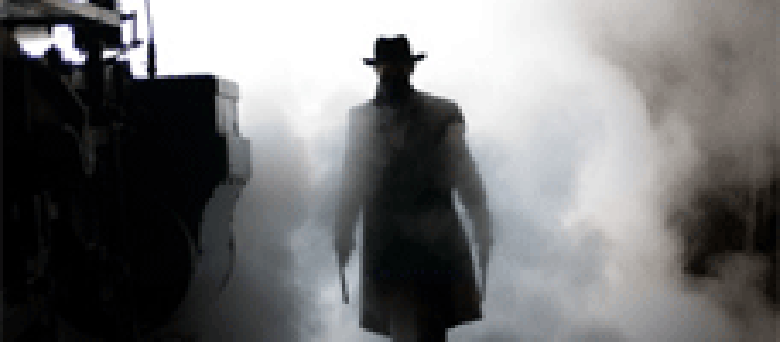
The Assassination of Jesse James by the Coward Robert Ford
Andrew Dominik
USA, 2007
Credits
Review by Tom Huddleston
Posted on 24 October 2007
Source Warner Bros. 35mm print
Related articles
Reviews The Assassination Of Jesse James By The Coward Robert Ford by Jit
Categories The Times BFI 51st London Film Festival
The Assassination of Jesse James by the Coward Robert Ford has been gathering dust on Warner Bros.’ shelves for some 18 months now, awaiting release. The official reasons behind this have remained a mystery—the film experienced no troubled production, has suffered no studio recut, and does not contain any potentially explosive political or sociological parallels. It has simply been held back, and is now finally escaping thanks to a summer of good press and awards at several of the international film festivals. But it’s easy to imagine the reasons behind the Warner executives’ decision to shelve the film. One pictures the lights coming up in an industry screening room, a gaggle of panicked studio execs looking at one another, the same two words echoing in every head: Heaven’s Gate.
The parallels between the two films are notable, if not overwhelming. Both are revisionist westerns which place a premium on ‘authenticity,’ both examine infamous real-life events through the lens of recent historical research, while still taking liberties with the established truths. Both films are brutal and severe, dealing with murder and betrayal, attempting to explore the inner lives of men scratching out a living on the frontier of civilisation, though Cimino’s film was more political while Dominik’s is clearly more personal. And although, at 155 minutes, Assassination comes nowhere near to Heaven’s Gate’s original four hour runtime, both films are long, and feel like it.
For now, Assassination does not feel like the genuine masterpiece that Heaven’s Gate has gradually revealed itself to be. But it is a grand and engrossing film, thematically pertinent and rich with character and period detail. The story is familiar from previous films, books, songs and stories—in 1880’s Missouri, the infamous outlaw Jesse James, now living under the pseudonym of Thomas Howard, hires and befriends a budding young outlaw named Bob Ford. Ford idolises Jesse, having grown up on stories of his exploits, stories he keeps hidden in a box beneath his bed with other items of James memorabilia. But as Ford comes to know and understand his hero, Jesse’s capricious and often cruel nature is revealed, turning Bob’s adulation to a simmering resentment that eventually turns murderous.
The key theme in the film, naturally, is hero worship and nature of the relationship between fan and celebrity. Ford’s awkward, stumbling first introduction to Frank James, in which he attempts to persuade the famous outlaw that he has what it takes to become a member of the gang, resembles nothing less than an American Idol audition, with Ford alternating between self aggrandisement and desperate groveling, and Sam Shepard as a sort of dismissive 19th Century Simon Cowell. But having been spurned by one brother Ford turns to the other, and finds in Jesse a much more willing object of admiration: the self he sees reflected in Ford’s eyes is much more pleasing to Jesse than what he sees in the mirror. But when he invites Ford into his inner circle he finds an unsettling, borderline obsessive personality, a Tom Ripley figure attempting to inveigle his way into Jesse’s life, even into his family.
The characters surrounding Jesse are all reminiscent of figures one might find in the entourage of a modern music or movie star. If Robert Ford is the adoring fan, his brother Charley is the trusted buddy figure, basking in reflected glory and suffering Jesse’s jibes because he genuinely loves to be around him, while at the same time becoming increasingly afraid and resentful of Jesse’s temper and unpredictable streak. Jesse’s cousin Wood Hite is the consummate insider, assured of his position and lording it over all the others, while ladies man Dick Liddil is the only one seemingly unaffected by Jesse’s fame, too self absorbed to notice. And back in the shadows is Jesse’s long suffering wife Zee, a silent figure who never features in the adventure stories, but who feeds and clothes Jesse, and raises his children.
As Jesse, Brad Pitt exudes authority and control—over others if not himself. But for the most part this is a quiet, unshowy performance, making the awards the actor has received rather surprising. It’s only towards the end, as Jesse starts to lose himself in paranoia and futile scheming, that Pitt comes alive—a scene in which he puts a knife to Ford’s throat, ostensibly in jest, has a shocking sense of genuine threat. But Pitt is outshone by Casey Affleck’s revelatory performance, the centre of the film and its most pleasant surprise. Affleck’s Ford is a complex, multi-layered but painfully familiar character: he is, as Dominik has said, ‘the part of yourself that you wish you weren’t,’ the desperate, self-hating, uncontrolled, abused child that hides in all of us, desperately seeking approval and confirmation from those we deem to be ‘above’ us. For Ford, as for any obsessive fan or stalker, this aspect of his personality has overwhelmed all the others, leaving him drowning in self loathing and dreams of being someone else, namely Jesse. And we see the reasons behind Ford’s delusion, a lifetime of mainly good-natured mistreatment at the hands of his older, more competent brothers and their outlaw friends. The film’s story is Ford’s struggle for self affirmation and ultimately meaning, first through his friendship with Jesse, then his betrayal. The irony is that he essentially succeeded—after all, here we are 125 years later still telling his story.
But Affleck manages to make Ford sympathetic, even as he scratches and scrapes his way through life, even though we know what he will ultimately be capable of. Because he is, in the end, little more than a child- just 20 years old when he murdered Jesse, and still hopelessly uncertain of his place in the world. The eagerness in Affleck’s eyes, and the disappointment which inevitably follows, gives Ford a pitiable charm and a genuine sense of pathos. And although Affleck’s performance here might not rival Matt Damon’s blank, terrifying portrayal of Tom Ripley, it does show extraordinary promise, as long as he doesn’t get bogged down in slushy, unworthy Hollywood dramas and action blockbusters like Damon has.
Also worthy of honourable mention is Sam Rockwell’s performance as Charley Ford. Rockwell has felt like a leading man almost since his first screen appearance, and with good reason—he is one of those actors who can fill a screen without even trying. So to see him playing second fiddle here could have been awkward, he could easily have outshone his co-stars, in personality if not in talent. A relief, then, that his performance is so completely appropriate, and likeable. Charley is a figure progressively beaten down by his association with two driven, compulsive characters—he begins the film confident and popular, the joker in the pack. By the end he is fearful of Jesse, aware of Bob’s assassination plans but unable or unwilling to prevent them being carried out. He seems unable to process the change in his little brother, the determination and cold bloodedness he has begun to exhibit. Rockwell beautifully encapsulates all the stages of Charley’s downfall, as his face changes from youthful to haggard and his eyes grow progressively more haunted.
The rest of the cast are uniformly excellent—not just Pitt, Affleck, Rockwell and Shepard, but an extraordinary array of character actors and bizarre cameos: Mary-Louise Parker, Zooey Deschanel, Michael Parks, Ted Levine, James Carville, even Nick Cave (whose Bad Seeds compatriot Warren Ellis wrote the gorgeous, subtle score). Perhaps the most affecting performance comes from Deadwood’s Garret Dillahunt as Ed Miller, the obligatory dumb cowboy whose hapless, rheumy-eyed innocence is brutally exploited by Jesse. But given the actors involved, it’s a pity that the female characters get such short shrift. Despite her high billing Mary-Louise Parker is criminally underused, speaking barely five lines, while Zooey Deschanel only appears in the film’s extended coda, and is given one scene. It would be no surprise to find an even longer cut of the film emerging on DVD, giving more space to these underdeveloped characters.
But the real star of the film, and the jewel in its crown, is Roger Deakins’ breathtaking cinemascope photography. The North American landscape has rarely looked so glorious, the characters and their struggles utterly dwarfed by the grandeur surrounding them. But Deakins’ close ups can be equally striking, using lamps and candles to capture the softness of faces, the hushed warmth of firelit rooms. There are a few moments of unfortunate cliché - do we really need another close up on an outstretched hand brushing through a field of wheat? - but overall this is perhaps the most beautifully shot American film of the year.
But despite all these advantages, the film is simply unable to sustain its runtime, and things slow down towards the end. The problem is partly one of structure—once the eponymous act has been committed the film explores the fallout and its effect on Ford in the form of a narrated coda interspersed with brief dialogue scenes, a technique which fails because the film seems to be telling us the story is over; it just won’t let us leave. This part of the tale is undoubtedly fascinating, but Dominik should either have found a way to do without it, or developed it into a fully fledged final act. And there are some odd story choices made throughout—an essentially unconnected subplot involves Hite and Liddil’s visit to Hite’s father, and although it develops both of these characters it doesn’t move the story forward. Conversely, the section showing Ford’s betrayal of Jesse to the police, and his attempt to use this as leverage to worm his way into high society, feels completely underdeveloped, and is over in a couple of scenes.
But for the most part, The Assassination of Jesse James by the Coward Robert Ford is an involving and often very beautiful film, taking its time to tell a familiar story in an unexpected and believable way. And while it’s hard to imagine the film reaching the audience it probably deserves, this is a very welcome addition to the annals of the American West.
More The Times BFI 51st London Film Festival
-
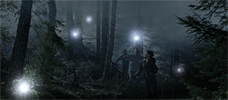
Island of Lost Souls
2007 -

Garage
2007 -

Exodus
2007 -
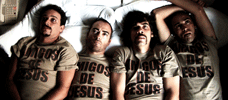
Friends of Jesus
2007 -

We Want Roses Too
2007 -
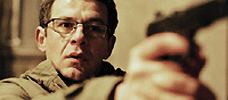
The Trap
2006 -

Captain Ahab
2007 -
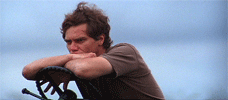
Shotgun Stories
2007 -

Savage Grace
2007 -

The Assassination of Jesse James by the Coward Robert Ford
2007 -

The World Unseen
2007 -

Things We Lost In The Fire
2007 -

Lions for Lambs
2007 -

Talk to Me
2007 -

Redacted
2007 -

Battle For Haditha
2007 -

Chaotic Ana
2007 -

Angel
2007 -

Juno
2007 -

Fay Grim
2006 -

Reservation Road
2007 -
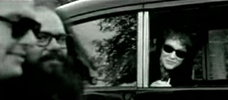
I’m Not There
2007
We don’t do comments anymore, but you may contact us here or find us on Twitter or Facebook.


